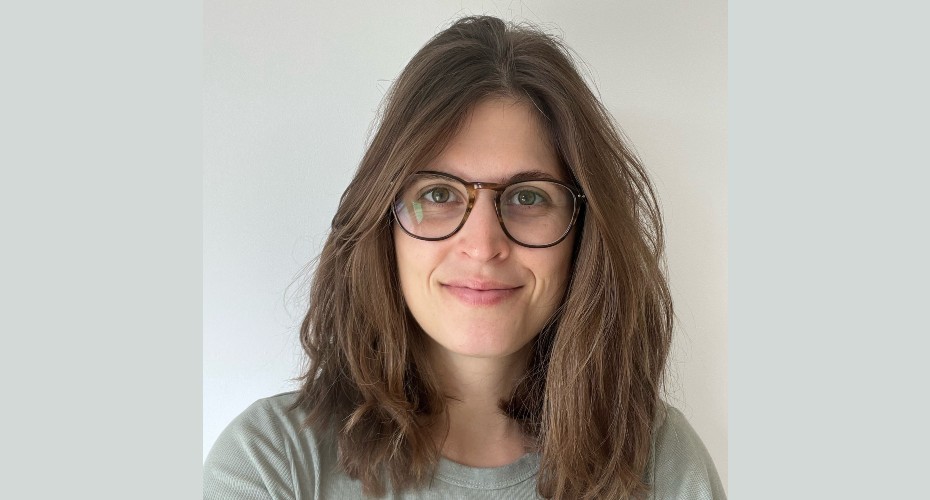Meet Anna, Psychological Wellbeing Practitioner

Anna is a Psychological Wellbeing Practitioner and shared with us what her work in the Student Support team might cover along with ideas for a good night’s sleep and how she keeps mentally healthy.
I work with a Cognitive Behavioural Therapy (CBT) approach to help people experiencing depression, anxiety, stress or other difficulties in their mental health.
I generally work one-to-one with people using CBT techniques to help them understand how their thoughts, feelings and behaviours interact with each other. Sometimes there is a bit of a vicious cycle happening and we can look at how we can break that cycle to essentially help that person feel better.
Part of my role is also to look at what is actually going on, what is someone struggling with, and to signpost or refer students to other therapies, support services, or self-help materials. The support I offer is tailored to the individual’s needs and is normally short-term therapy over 6-8 sessions, focusing on their goals - for instance better management of panic attacks.
This often includes psychoeducation and specific interventions. This may mean learning about mental health and wellbeing concerns, for example what is a panic attack, but also ways of how to manage and change unhelpful thoughts and behaviours.
Tell us a bit about your background and how you became part of the Student Support Team?
I am from Austria originally where I studied psychology and then I moved to the UK and became a PWP in the NHS. I was very interested in working with younger people and came to the Student Support Team a year before lockdown.
I like the outdoors, I love surfing and yoga, and I try be mindful wherever possible. I have a young family so formal mindfulness practice isn’t always possible, so I try to take an informal approach to it. I also love good food and chilling out on the sofa on an evening.
Keeping it simple and making sure my basic needs are met, like a good night’s sleep and eating well. I also enjoy social contact and being part of a community.
For better sleep, I would suggest thinking about the following:
Establishing a good bedtime routine so your body knows what’s to come, for example having a bath or reading a book (it’s probably a good idea to avoid something like a thriller).
No screen time in the last 30 minutes before bed, the blue light makes us feel awake and we might see something that wakes us up rather than calms us.
It’s good to think about lifestyle factors: no sugar, no alcohol or stimulants, be mindful of drugs, no nicotine, and no big meals at the end of the day.
Consider your environment like having a comfortable bed, making sure the room is not too hot and dark.
Try having the bed mainly for sleeping which is really difficult for students, who tend to use their beds for eating, studying and socialising as well.
Most importantly if you find yourself tossing and turning and clock watching, get up and try and do something else calming or listen to an audiobook to distract your mind. Then try to go to sleep again, to try and break that cycle and not get too stressed.
When you ask good sleepers how they sleep well they often don’t know because they don’t do anything - it is unintentional. Sometimes when you have a lot of stress and are worried about the next day and put pressure on yourself to sleep you can’t get to sleep because sleep happens in a state of relaxation.
Try small changes one at a time, sleep can help with anxiety and depression.
Time spent outside, try and get a good night’s sleep, eat healthy and trying to be self- compassionate, treating yourself the way you would treat someone you love.
It is normal to feel anxious, homesick, overwhelmed, depressed or stressed sometimes. It can make us feel very alone and that there is something wrong with us.
We can help normalise this, there is lots of help out there and we are here to help. Our job is to try and make the first contact comfortable so you then feel less anxious about continuing and we can help you make an informed decision about what support might be most helpful for you. Lots of people access our support and find it really beneficial.
The best part of my job is working with people who have their whole lives ahead of them and the hope that after they finish their sessions with you, you might have helped that little bit, by playing a small part in their big journey.
There are many ways to contact the student support team:
- request a drop-in appointment at the Student Helpdesk
- email the team at studentservices@fxplus.ac.uk
- complete the drop-in form
- use the compass web chat
- call us on 01326 370 460



